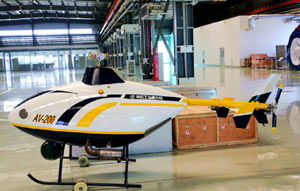

The government released a regulation on railway security on Friday, urging authorities to tighten supervision on railway construction.
The railway security management regulation, which takes effect from Jan 1, will replace the current rail transport safety rule issued in 2004, according to a statement released by the State Council.
The regulation stipulates safety requirements for railway construction, which is absent under the current rule, and makes specific clauses for high-speed rail line safety, the statement said, noting the new regulation also rectifies some provisions in the 2004 version that contradict the ongoing reform pushed forward by Premier Li Keqiang to streamline government work.
Railway authorities and operators must invite public bidding to decide on the design, construction and supervision companies and when purchasing construction materials and equipment, the regulation says.
The time expected for a rail line's construction should be determined by geological conditions and technical complexity, and no one should ask design or construction companies to shorten it.
It has been a common practice in China that local governments or railway operators would request construction firms to build the line as quickly as possible in order to boost the economy or win a reputation for rapid development.
Construction, mining and excavation operations near rail lines must take precautionary measures and gain permission from railway departments, according to the regulation.
The regulation also establishes a recall mechanism for railway equipment such as rail vehicles and urges railway supervision bodies to set up a logging system of irregular operations or violations of the law and make public these records.
Zhao Jian, a professor at Beijing Jiaotong University who specializes in China's railway system, said: "The move shows the government is determined to clear the way for the next stage of rail expansion.
"The overall safety condition of China's railway system has been substantially improved since Sheng Guangzu became the railway minister in 2011 because he is very serious about safety issues."
During this year's session of the National People's Congress in March, the Ministry of Railways, established in 1949, was dismantled. Its administrative functions were absorbed by the Ministry of Transport, while China Railway Corp has taken over its commercial functions. Sheng was relieved of his ministerial post and appointed as general manager of the company.
"Although the safety conditions are better than in the past and the number of accidents has become smaller, hazards still exist," said Yang Hao, another professor at the university who researches transportation management.
"It is because the railway system developed at tremendous speed over the past decade and most of those who work in this sector couldn't keep pace with the rapid growth. They work and treat new things in the old way and with outdated notions, therefore creating many problems," he said.
 'Victoria's Secret' turns out to sell house
'Victoria's Secret' turns out to sell house
 Jaguar Land Rover XF Art Edition at Chengdu Motor Show
Jaguar Land Rover XF Art Edition at Chengdu Motor Show
 China's chopper industry flying high
China's chopper industry flying high
 Models shine at 2013 Chengdu Motor Show
Models shine at 2013 Chengdu Motor Show
 Cadillac sexy girls at 2013 Chengdu Motor Show
Cadillac sexy girls at 2013 Chengdu Motor Show
 FAW displays Hongqi H7 at Chengdu Motor Show
FAW displays Hongqi H7 at Chengdu Motor Show
 Models at Ford pavilion at Chengdu Motor Show
Models at Ford pavilion at Chengdu Motor Show
 Brilliant future expected for Chinese cinema: interview
Brilliant future expected for Chinese cinema: interview